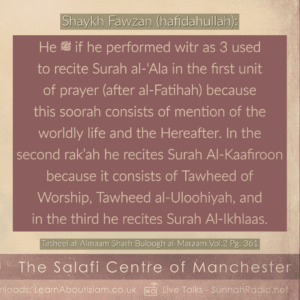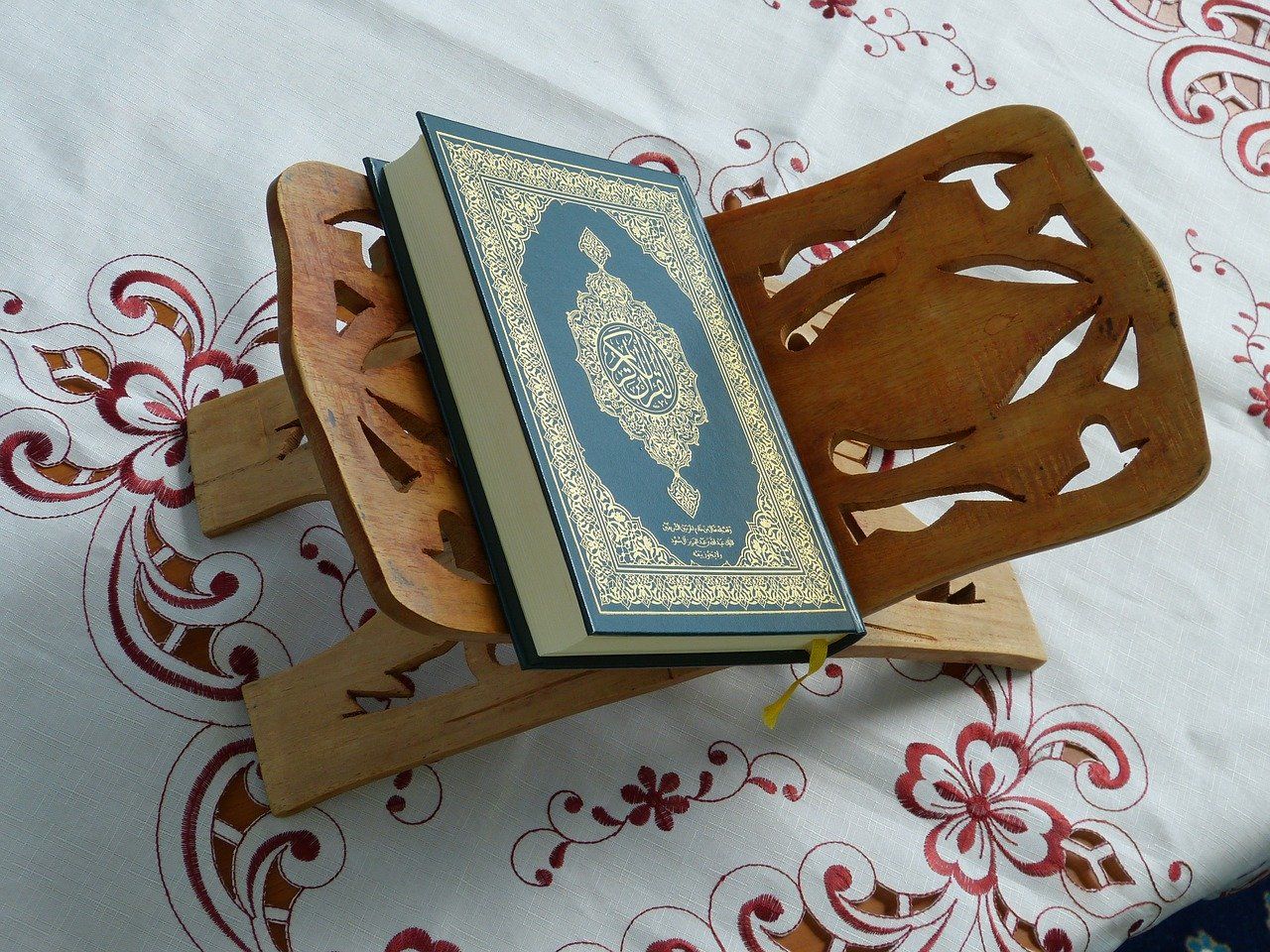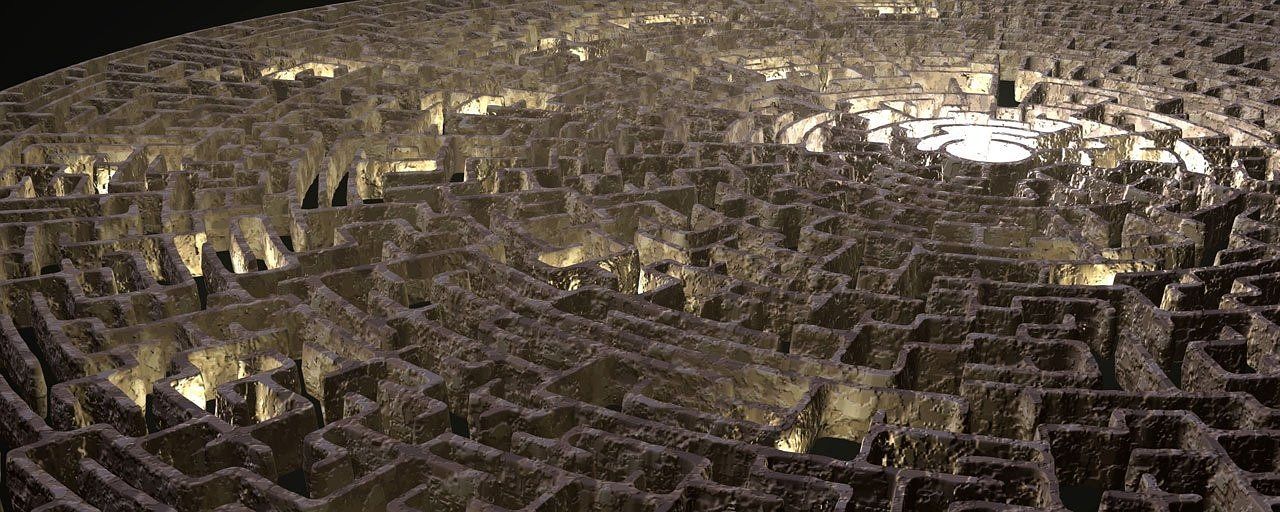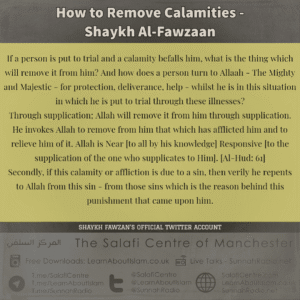In The Name of Allaah, The Most Merciful, The Bestower of Mercy.
Allaah [The Most High] said:
قَدۡ مَڪَرَ ٱلَّذِينَ مِن قَبۡلِهِمۡ فَأَتَى ٱللَّهُ بُنۡيَـٰنَهُم مِّنَ ٱلۡقَوَاعِدِ فَخَرَّ عَلَيۡہِمُ ٱلسَّقۡفُ مِن فَوۡقِهِمۡ وَأَتَٮٰهُمُ ٱلۡعَذَابُ مِنۡ حَيۡثُ لَا يَشۡعُرُونَ
ثُمَّ يَوۡمَ ٱلۡقِيَـٰمَةِ يُخۡزِيهِمۡ وَيَقُولُ أَيۡنَ شُرَڪَآءِىَ ٱلَّذِينَ كُنتُمۡ تُشَـٰٓقُّونَ فِيہِمۡۚ قَالَ ٱلَّذِينَ أُوتُواْ ٱلۡعِلۡمَ إِنَّ ٱلۡخِزۡىَ ٱلۡيَوۡمَ وَٱلسُّوٓءَ عَلَى ٱلۡڪَـٰفِرِينَ
Those before them indeed plotted, but Allah struck at the foundation of their building, and then the roof fell down upon them, from above them, and the torment overtook them from directions they did not perceive. Then, on the Day of Resurrection, He will disgrace them and will say: “Where are My (so called) ‘partners’ concerning whom you used to disagree and dispute (with the believers, by defying and disobeying Allah)?” Those who have been given the knowledge (about the Torment of Allah for the disbelievers) will say: “Verily! Disgrace this Day and misery are upon the disbelievers. [Surah An-Nahl. Aayah 26-27]
[قَدۡ مَڪَرَ ٱلَّذِينَ مِن قَبۡلِهِمۡ – Those before them indeed plotted]: The Mufassiroon say that this refers to Namrood who built a tall tower in order to climb – as he claimed – the heavens and fight its inhabitants.
[فَأَتَى ٱللَّهُ بُنۡيَـٰنَهُم مِّنَ ٱلۡقَوَاعِدِ فَخَرَّ عَلَيۡہِمُ ٱلسَّقۡفُ مِن فَوۡقِهِمۡ – but Allah struck at the foundation of their building, and then the roof fell down upon them, from above them]: The Mufassiroon say: Allaah sent a wind which flung the top of the tower to the sea and the rest was destroyed. [وَأَتَٮٰهُمُ ٱلۡعَذَابُ مِنۡ حَيۡثُ لَا يَشۡعُرُونَ – and the torment overtook them from directions they did not perceive]: Meaning, from where they thought they were safe. [ثُمَّ يَوۡمَ ٱلۡقِيَـٰمَةِ يُخۡزِيهِمۡ – Then, on the Day of Resurrection, He will disgrace]: Meaning, disgraced with punishment. [1]
[قَدۡ مَڪَرَ ٱلَّذِينَ مِن قَبۡلِهِمۡ – Those before them indeed plotted]: Meaning plotted against their Messengers, employed various types of tricks in order to reject that which the messengers brought and established gigantic safeguards [by way of arguments, views etc] on their plots. [فَأَتَى ٱللَّهُ بُنۡيَـٰنَهُم مِّنَ ٱلۡقَوَاعِدِ – but Allah struck at the foundation of their building]– Meaning, an affair came to them from its basis and foundation [فَخَرَّ عَلَيۡہِمُ ٱلسَّقۡفُ مِن فَوۡقِهِمۡ – and then the roof fell down upon them, from above them] -Meaning, so what they built became a punishment for them. [وَأَتَٮٰهُمُ ٱلۡعَذَابُ مِنۡ حَيۡثُ لَا يَشۡعُرُونَ – and the torment overtook them from directions they did not perceive]: Meaning, that is because they thought that such a building will benefit and protect them from punishment, but their punishment occurred from that which they built and established.
This is one the best of parables regarding how Allaah nullifies the plots of his enemies, for indeed they pondered and reflected on that which the Messengers brought when they belied them, made up principles and rules for it based on falsehood, referred back to them to reject that which the Messengers came with, employed tricks to bring discomfort to the Messengers and inflict harm on them and those who followed them, but their plot became a source of evil against them, so their plan became their destruction, because their plot was evil as Allaah said: [َلَا يَحِيقُ الْمَكْرُ السَّيِّئُ إِلَّا بِأَهْلِهِ – But the evil plot encompasses only him who makes it]. This is in this worldly life and the punishment in the afterlife would be more disgraceful, and due to this Allaah said: [ثُمَّ يَوۡمَ ٱلۡقِيَـٰمَةِ يُخۡزِيهِمۡ – Then, on the Day of Resurrection, He will disgrace them]. [2]
It used to be said that whoever perpetrates these three acts will be haunted by them:
[1] Rebellion against Allaah’s commandments. Allaah [The Most High] said:
[ يَا أَيُّهَا النَّاسُ إِنَّمَا بَغْيُكُمْ عَلَىٰ أَنْفُسِكُمْ – O mankind! Your rebellion (disobedience to Allah) is only against your ownselves]. [Soorah Yoonus: Ayah: 23]
[2] Evil plotting. Allaah [The Most High] said:
[ وَلَا يَحِيقُ الْمَكْرُ السَّيِّئُ إِلَّا بِأَهْلِهِ – But the evil plot encompasses only him who makes it]. [Soorah Faatir: Ayah: 43]
[3] Breaking pledges. [Allaah [The Most High] said:
[فَمَنْ نَكَثَ فَإِنَّمَا يَنْكُثُ عَلَىٰ نَفْسِهِ – Then whosoever breaks his pledge only breaks it to his own harm]. [Soorah Al-Fath: Ayah: 10] [3]
Analysing The Plots of The Disbelievers – A Fard Kifaayah
Shaikh Rabee Bin Haadee Al-Madkhalee (may Allaah preserve him) says:
So it is not permissible for the Ulamaa to remain heedless of their plans (i.e. the enemies of Islaam), their actions, their publications, their missionary activities and their various calls (to the Muslims). And also the various poisons they are infusing – which are in opposition to the Quraan and the Messenger (sallallaahu alayhi wasallam) and his Sunnah. And nor of what plans they have for (the destruction of) the beliefs and methodologies of Islaam. It is not permissible either, to remain heedless of their concentrated efforts to Christianize or secularize the Muslim youth. And along with that, the Muslim youth and the students are not able to oppose this plan and strategy. Rather it is necessary that the distinguished Ulamaa – those who are experienced and shrewd – it is for such people, in all the places to undertake this duty. So it is obligatory for some of the intelligent and ingenious people from the field of Aqeedah to be mobilised for opposing these plans. And likewise it is a must that the intelligent and distinguished from amongst the specialists in the Sunnah – that they be mobilised for the refutation of these and similarly the eminent and distinguished from amongst those in the fields of Orientalism for the refutation of the plans of the Orientalists.” (Ahl ul-Hadeeth, p.102)
He also says: “I myself believe that it is a benefit – rather it is of necessity – that we know what the enemies are planning for us, and that it is necessary for us to prepare (ourselves in strength) to destroy their plans. However, I do not exaggerate in this matter, rather my view is the view of our Ulamaa and they have all agreed upon this – that amongst the obligatory matters there are some that are Fard Ain and others that are Fard Kifaayah – and even if knowing the state of the enemies is harmful – it is still necessary for us to know it – but it is treated as Fard Kifaayah. When some attend to it, then the harm is removed from the rest” up until he said: “So I consider that there is no criticism for the Ulamaa and the students of knowledge who take great concern for preserving the Sharee’ah of Allaah – in terms of the Book, the Sunnah and its understanding – for this is one of the duties of the Kifaayah actions. And I believe that these people are more superior, noble, truthful and of more benefit to Islaam than those who are weak in their knowledge of the religion of Allaah or those who have no share in acquainting themselves with it.” [An excerpt from an article at www.salafipublications.com titled: The Salafis and Looking into the Affairs of the Ummah]
[1: An Excerpt from ‘Zaadul Maseer Fee Ilmit Tafseer’ By Imaam Ibnul Jawzi (rahimahullaah). Slightly paraphrased]
[2: An Excerpt from Tafseer as-Sadi. Slightly paraphrased]
[3: Kitaab Uyoonul Akhbaar of Ibn Qutaybah (rahimahullaah) Vol 1: page: 149]












